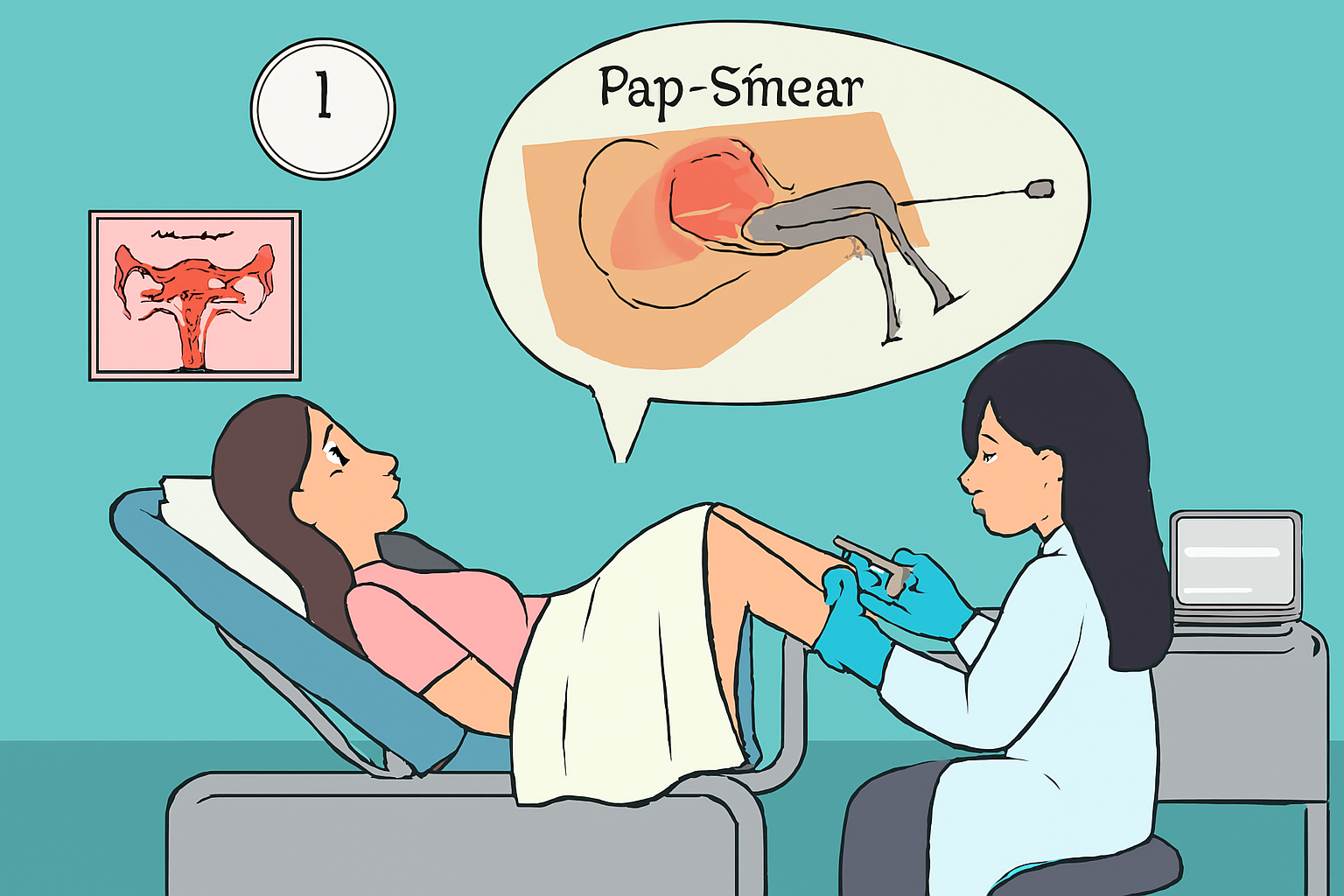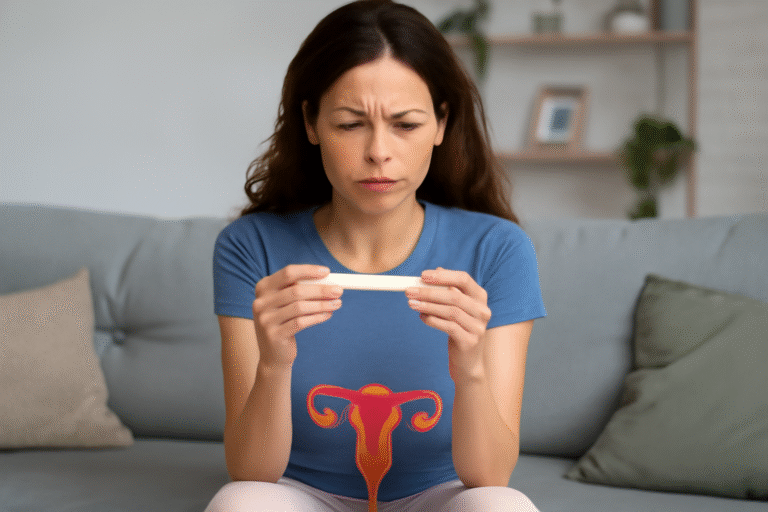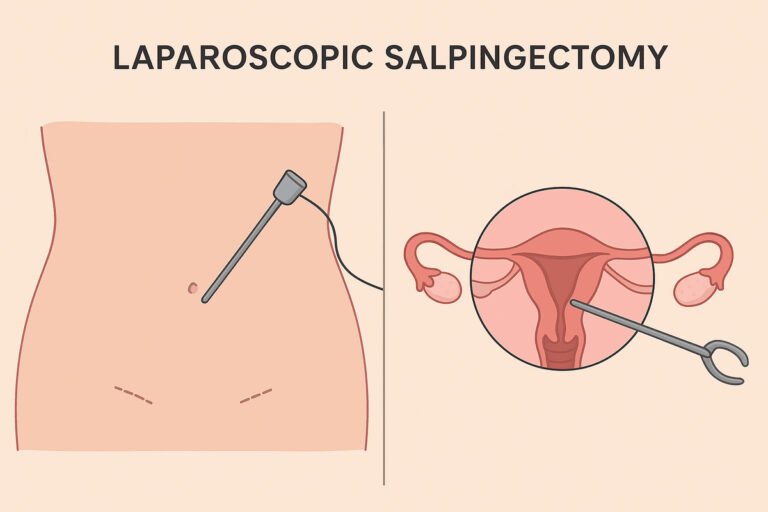An abnormal Pap smear can raise concerns for many women, but can it detect HIV? While a Pap smear is crucial for detecting cervical abnormalities, it does not directly test for HIV. However, there are meaningful connections between abnormal Pap smear results and HIV status. This article explores how HIV affects cervical health, the role of Pap smears in early detection, and the importance of regular screenings for women at risk.
Also read: 8 Truths About Falling in Love as a Highly Sensitive Person
What is a Pap Smear and What Does It Detect?
The test specifically examines the cells of the cervix for signs of abnormal growth or infection, especially HPV, which increases the risk of cervical cancer.:
- Human Papillomavirus (HPV) infection – A significant cause of cervical cancer.
- Cervical dysplasia – Abnormal cell growth that could develop into cancer.
- Cancerous or precancerous cells – indicating a higher risk for cervical cancer.
While a Pap smear is an effective tool for detecting abnormal cells or HPV, it is not designed to detect HIV. There may be some light bleeding or spotting after a Pap smear is normal, as it occurs due to the sampling of cervical cells; however, it should subside within a day or two. If the bleeding after pap smear is heavy or lasts longer than expected, it’s essential to contact your healthcare provider.
Does a Pap Smear Hurt?
A Pap smear is generally not painful, though it may cause some discomfort. During the procedure, you may feel a brief, mild pressure or a light scraping sensation as the doctor collects cells from your cervix. Some women may experience slight cramping or discomfort, especially if they are tense or anxious; however, these sensations usually subside quickly. It’s essential to communicate with your healthcare provider if you experience any significant pain, as they can adjust the sample procedure to ensure your comfort.
Does an Abnormal Pap Smear Detect HIV?
No, a Pap smear does not directly detect HIV. The test specifically examines the cells of the cervix for signs of abnormal growth or infection, especially HPV, which increases the risk of cervical cancer.. However, people living with HIV are more vulnerable to developing abnormal cervical cells due to a weakened immune system, making regular Pap smears essential for early detection of any changes.
How HIV Affects Cervical Health
Women living with HIV have more chances of developing cervical abnormalities due to the immunosuppressive effects of the virus. HIV weakens the immune system, making it harder for the body to fight off infections, including HPV, which is a leading cause of cervical cancer. Studies show that women with HIV are at a much higher risk of persistent HPV infection and cervical dysplasia compared to those without the virus.
Here’s how HIV can impact cervical health:
- Increased Risk of HPV: HIV-positive individuals are more likely to have persistent HPV infections, which can lead to cervical cancer.
- Faster Progression of Cervical Abnormalities: Women with HIV are more likely to develop severe cervical abnormalities, such as high-grade squamous intraepithelial lesions (HSIL), which can progress to cervical cancer.
- Weakened Immune Response: With a compromised immune system, HIV-positive women may have trouble clearing HPV infections, increasing the likelihood of abnormal Pap smear results.
Why Is Regular Screening Important for Women with HIV?
While an abnormal Pap smear does not detect HIV, women living with HIV need to have regular Pap tests. Early detection of cervical abnormalities can lead to more effective treatment and a better chance of preventing cervical cancer. The American College of Obstetricians and Gynaecologists (ACOG) recommends that women with HIV start Pap smear screening within one year of becoming sexually active or by age 21, whichever comes first, and continue screening every 1–3 years, depending on results.
For women with HIV, regular screening is crucial because:
- HPV and Cervical Cancer Risks: HPV infections can be more persistent and more challenging to treat in those with HIV, putting them at a higher risk of developing cervical cancer.
- Early Detection and Treatment: Abnormal Pap smears can lead to earlier intervention, potentially preventing the progression to cervical cancer.
- Monitor Immune Health: Regular screenings help monitor the impact of HIV on cervical health, especially if antiretroviral therapy (ART) has affected the immune system.
How HIV and HPV Are Linked
HIV and HPV are both sexually transmitted infections, and they often go hand-in-hand in affecting cervical health. While HIV is a viral infection that targets the immune system, HPV is a virus that primarily affects the skin and mucous membranes, particularly in the genital area.
For women living with HIV, the likelihood of developing persistent HPV infections is significantly higher, leading to abnormal Pap smear results. HIV-positive women are often at risk for a co-infection with HPV, and this combination increases the likelihood of cervical abnormalities.
Key Statistics on HIV, HPV, and Cervical Cancer:
- Approximately 80% of women will be infected with HPV at some point in their lives, but the immune system clears most infections.
- Women with HIV are more likely to have persistent HPV infections, with 50-70% of HIV-positive women showing signs of persistent HPV infection.
- Cervical cancer is the fourth most common cancer in women worldwide, with HIV-positive women being at greater risk of developing this form of cancer due to HPV.
Can You Detect HIV from a Pap Smear?
Although a Pap smear cannot detect HIV, it is still an essential part of a woman’s health routine, especially for those at higher risk, like those with HIV. The best way to detect HIV is through specific blood tests that check for the presence of the virus and its antibodies.
HIV Testing Methods:
- Rapid HIV tests: These can provide results in as little as 20 minutes.
- At-home HIV tests: Available for discreet testing with results typically ready in 20-40 minutes.
- Blood tests: The most common method for diagnosing HIV is to measure the amount of HIV in the bloodstream.
Can you get a pap smear on your period?
Yes, you can get a Pap smear while on your period, but it’s generally better to schedule it for when you’re not menstruating. While having your period doesn’t usually interfere with the test’s accuracy, menstrual blood can make it harder for the doctor to get a clear sample of cervical cells. This could affect the quality of the test, especially if you have a heavy flow. Additionally, some women may find it uncomfortable to undergo the procedure while experiencing cramps or heavy bleeding. It’s recommended to schedule the test approximately 5 to 10 days after your period ends for optimal results and comfort. If you need to take the test during your period, it’s essential to inform your doctor, as they may advise rescheduling if your flow is too heavy.
Conclusion
In conclusion, while an abnormal Pap smear does not directly detect HIV, it plays a crucial role in monitoring cervical health, especially for women living with HIV. Regular Pap smears are vital for early detection of HPV infections and cervical abnormalities, which are more common and more severe in HIV-positive women. For those at risk, combining Pap smears with routine HIV testing ensures comprehensive health management. Always consult with your healthcare provider to determine the best screening schedule tailored to your health status.




